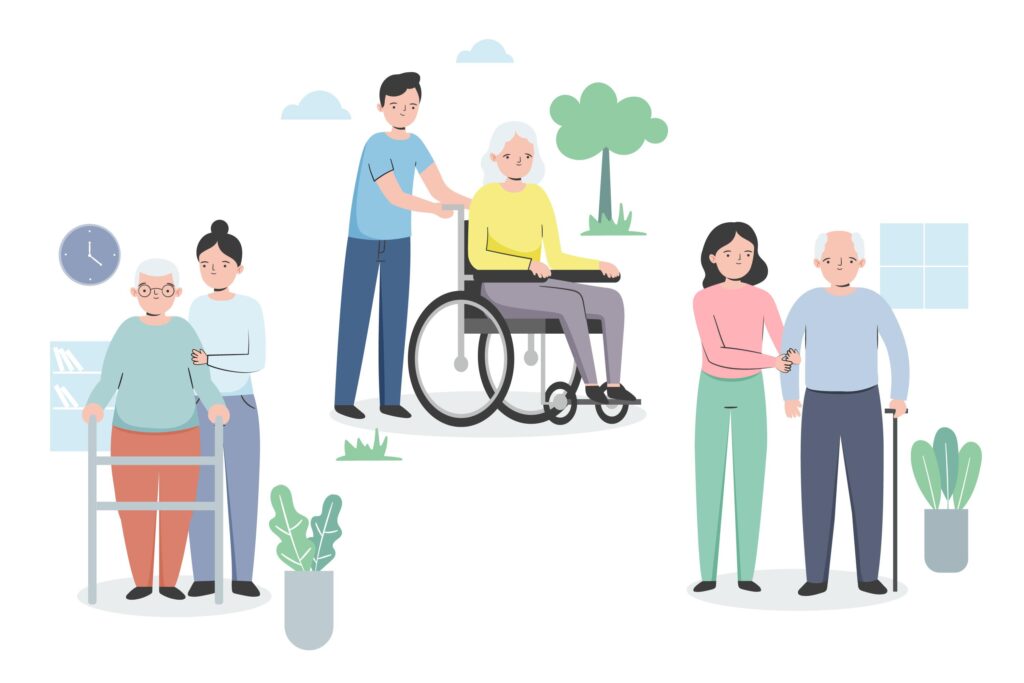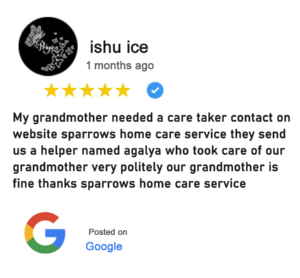
Home Nursing
Introduction to Home Nursing
When it comes to healthcare, there’s no place like home. Home nursing has become an essential component of modern healthcare, providing patients with professional medical care in the comfort of their own homes. But what exactly is home nursing, and why is it so important today?
The Evolution of Home Nursing
Historical Background
Home nursing isn’t a new concept. Its roots can be traced back to ancient times when caregivers provided medical care in the homes of the sick and elderly. Over the centuries, home nursing has evolved, adapting to changes in medical knowledge, technology, and societal needs.
Changes Over the Decades
The 20th century saw significant advancements in home nursing, particularly with the rise of home health agencies and advancements in medical technology. Today, home nursing encompasses a wide range of services that cater to the needs of diverse patient populations.

Types of Home Nursing Services
Skilled Nursing Care
This includes medical services provided by licensed nurses, such as wound care, administering medications, and monitoring health conditions.
Personal Care Assistance
Home nursing also covers non-medical services like helping patients with daily activities, including bathing, dressing, and eating.
Companionship and Social Interaction
For many patients, especially the elderly, companionship can be just as important as medical care. Home nurses often provide social interaction to help reduce feelings of loneliness and isolation.
Specialized Medical Services
Some home nursing services offer specialized care for conditions such as diabetes, heart disease, or cancer, providing patients with the expertise they need to manage their health effectively.

Benefits of Home Nursing
Comfort of Home
One of the most significant benefits of home nursing is the comfort and familiarity of being at home. Patients often recover faster and feel more at ease in their own environment.
Personalized Care
Home nursing allows for personalized care tailored to the specific needs of each patient. This individualized approach can lead to better health outcomes and higher patient satisfaction.
Cost-Effectiveness
Compared to hospital stays or long-term care facilities, home nursing can be a more cost-effective option, reducing healthcare expenses for families and the healthcare system as a whole.
Better Health Outcomes
Studies have shown that patients receiving home nursing care often have better health outcomes, including lower rates of hospital readmissions and improved management of chronic conditions.
Challenges in Home Nursing
Ensuring Quality Care
One of the primary challenges in home nursing is ensuring the quality of care. This requires regular training and monitoring of home nurses to maintain high standards.
Managing Medical Equipment
Home nursing often involves the use of medical equipment that must be properly maintained and operated. This can be challenging in a home setting compared to a hospital.
Coordination with Healthcare Providers
Effective home nursing requires seamless coordination with other healthcare providers to ensure that the patient receives comprehensive and consistent care.
Addressing Emotional and Social Needs
Home nurses must also address the emotional and social needs of patients, which can be challenging but is crucial for holistic care.

Qualifications and Training for Home Nurses
Educational Requirements
Home nurses typically need to have a nursing degree and pass the necessary licensing exams. Depending on their role, additional certifications may be required.
Certification and Licensing
Home nurses must be licensed to practice in their state or country. This ensures they meet the professional standards required for providing medical care.
Ongoing Training and Development
Continual training is essential for home nurses to keep up with the latest medical practices and technologies, ensuring they can provide the best care possible.
How to Choose a Home Nursing Service
Assessing Needs
The first step in choosing a home nursing service is to assess the specific needs of the patient. This includes understanding the medical and personal care required.
Researching Providers
Look for home nursing providers with a good reputation and positive reviews. Researching multiple providers can help you find the best fit for your needs.
Checking Credentials and Reviews
Ensure that the home nursing service has the necessary credentials and positive reviews from other patients. This can provide peace of mind about the quality of care.
Financial Considerations
Consider the costs associated with home nursing services and explore options for insurance coverage or financial assistance if needed.
Technology in Home Nursing
Telehealth and Remote Monitoring
Technology has revolutionized home nursing, with telehealth and remote monitoring allowing nurses to keep track of patients’ health remotely and provide timely interventions.
Mobile Health Apps
Mobile health apps can help patients manage their health conditions, schedule appointments, and communicate with their healthcare providers.
Smart Home Devices for Health Management
Smart home devices, such as medication reminders and health monitoring systems, can support home nursing by ensuring patients adhere to their treatment plans.
The Role of Family in Home Nursing
Supporting the Patient
Family members play a crucial role in supporting the patient, from providing emotional support to assisting with daily activities.
Communicating with Nurses
Open communication between family members and home nurses is essential for effective care. This helps ensure that everyone is on the same page regarding the patient’s needs and treatment.
Ensuring Continuity of Care
Families must work with home nurses to ensure continuity of care, particularly when transitioning between hospital and home settings.

Legal and Ethical Considerations
Patient Rights and Privacy
Home nurses must respect patients’ rights and privacy, ensuring that their personal and medical information is kept confidential.
Ethical Dilemmas in Home Nursing
Home nurses may face ethical dilemmas, such as balancing the patient’s wishes with medical advice. It’s important to approach these situations with sensitivity and professionalism.
Legal Responsibilities of Home Nurses
Home nurses have legal responsibilities, including adhering to medical standards, reporting any abuse or neglect, and maintaining accurate patient records.
Home Nursing for Different Age Groups
Pediatric Home Nursing
Children with medical needs can benefit from pediatric home nursing, which provides specialized care tailored to younger patients.
Adult Home Nursing
Adult patients, whether recovering from surgery or managing chronic conditions, can receive tailored home nursing care to support their recovery and health.
Geriatric Home Nursing
Elderly patients often require specialized care to manage age-related health issues. Geriatric home nursing focuses on providing comprehensive care for older adults.

Common Conditions Managed in Home Nursing
Chronic Illnesses
Home nursing can help manage chronic illnesses such as diabetes, heart disease, and respiratory conditions, ensuring patients receive regular monitoring and treatment.
Post-Surgical Care
After surgery, home nursing can assist with recovery by providing wound care, pain management, and monitoring for complications.
Rehabilitation Services
Home nursing includes rehabilitation services to help patients regain their strength and independence after an illness or injury.
End-of-Life Care
Home nursing can also provide compassionate end-of-life care, ensuring that patients receive the support they need during this difficult time.

6500+ happy Patients
"Join over 6,500 happy patients and discover exceptional care." "With over 6,500 satisfied patients, we demonstrate our dedication to delivering quality service."
What Our Customers say









Case Studies and Success Stories
Examples of Effective Home Nursing
There are many success stories that highlight the effectiveness of home nursing, from patients recovering from major surgeries to those managing chronic conditions with ease.
Testimonials from Patients and Families
Hearing from patients and their families about their positive experiences with home nursing can provide valuable insights and reassurance for those considering this type of care.
Future Trends in Home Nursing
Advances in Medical Technology
The future of home nursing looks promising with ongoing advancements in medical technology, making home care more efficient and accessible.
Changes in Healthcare Policy
Changes in healthcare policy may further support the growth of home nursing by providing more funding and resources for home-based care services.
Increasing Demand for Home-Based Care
As the population ages and healthcare costs rise, the demand for home-based care is expected to increase, highlighting the importance of home nursing in the healthcare system.
Conclusion
Home nursing is an invaluable service that provides patients with the care they need in the comfort of their own homes. From skilled nursing to personal care and companionship, home nursing offers a wide range of services that cater to diverse patient needs. Despite the challenges, the benefits of home nursing—such as personalized care, cost-effectiveness, and better health outcomes—make it an essential component of modern healthcare. As technology advances and the demand for home-based care grows, home nursing will continue to play a crucial role in improving the quality of life for patients.


